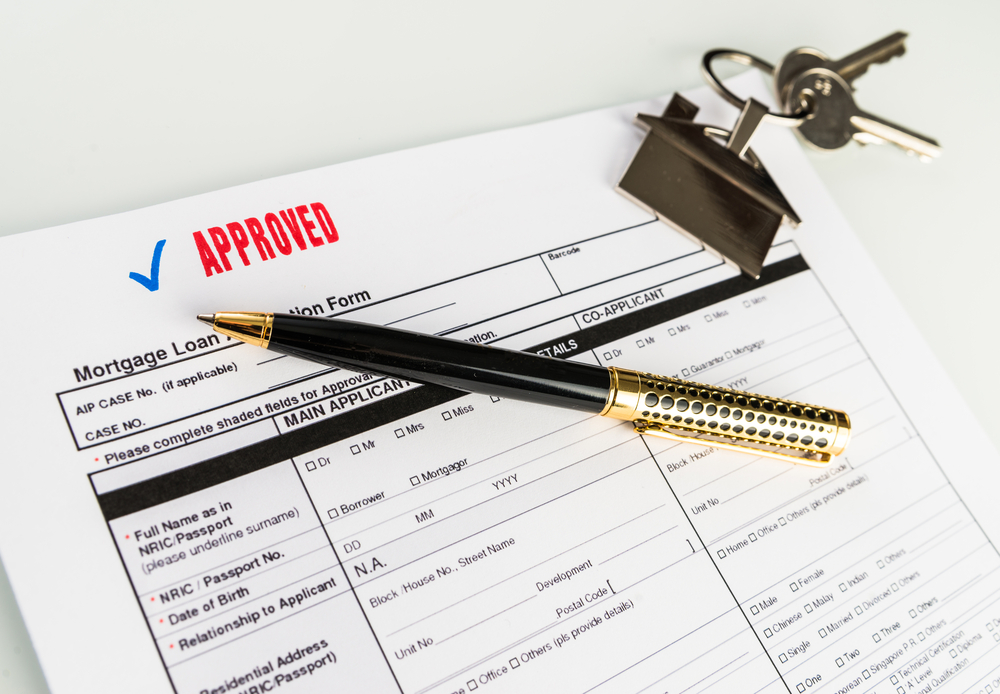When starting the journey of purchasing a home, one essential step is securing mortgage pre-approval. This process entails a lender assessing your status and offering an agreement to lend you a specific amount for your home purchase.
Mortgage Pre-Approval Insights
Mortgage pre-approval involves an evaluation by a lender of your standing to determine if you qualify for a mortgage based on factors like income, assets, debts, and credit score.
Unlike pre-qualification, which offers an estimate of borrowing capacity, pre-approval signifies stronger buyer readiness for sellers and real estate professionals. This enhances the likelihood of having your purchase offer accepted.
Navigating the Mortgage Pre-Approval Journey

The path to mortgage pre-approval consists of several stages:
Step 1: Evaluate Your Financial Situation
Before you start the approval process, assess your financial well-being. Check your credit report, gather your paperwork, and calculate your debt-to-income ratio. This will give you an understanding of whether you’re ready to apply for a mortgage and help you pinpoint areas that may need attention.
Step 2: Select a Lender
Research lenders and compare aspects like interest rates, fees, and customer service. You can choose from banks, credit unions, or online lenders. It’s wise to get pre-approval from lenders to compare their offers and secure the best possible deal.
Step 3: Complete a Mortgage Application
After picking a lender, you’ll have to fill out a mortgage application form. This form will require information about your income, assets, debts, and work history. Make sure to provide thorough information on the application to avoid delays or potential rejection.
Step 4: Submit the Required Documentation
When applying, you will be asked to provide documents to confirm your details. These may include:
- Proof of income (such as W-2 forms payslips and tax returns)
- Bank statements (for both checking and savings accounts)
- Statements from investment accounts
- Identification documents (like a drivers license or Social Security card)
- Evidence of assets (such as retirement accounts, stocks and bonds)
- Details about your debts (like credit card statements, student loans and car loans)
- Confirmation of rent or mortgage payments
Ensure that all documentation is complete and accurate to expedite the approval process.
Step 5: Lender Assesses Your Application and Completes a Credit Check
After you’ve submitted your application and supporting paperwork, the lender will review the information for accuracy. They will also conduct a credit check to evaluate your creditworthiness. This credit inquiry may cause a decrease in your credit score by a point; however, multiple inquiries for similar types of credit within a short time frame are usually considered one inquiry.
Step 6: Lender Determines Your Pre-Approval Status
Following the assessment of your application, documents, and credit history, the lender will make a decision on whether to pre-approve you for a mortgage and specify the approved amount. If you’re approved in advance, you’ll get a letter beforehand that details the loan amount, interest rate, and other mortgage terms. This letter usually remains valid for 60 to 90 days.
Step 7: Check and Understand Your Pre-Approval Letter
Thoroughly go through your approval letter to grasp the offer terms and conditions. Remember that pre-approval is an agreement based on your status when you applied. If there are changes in your situation, like losing your job or taking on debt, your lender might need to reevaluate your eligibility.
Follow these steps, and you can smoothly navigate through the mortgage pre-approval process with confidence and be prepared to kickstart your house hunt. Keep in mind that pre-approval plays a key role in your home-buying journey. It helps you stand out in the market and simplifies the process of securing your dream home.
Your Mortgage Pre-Approval Timeline

The time it takes to get approved for a mortgage pre-approval can vary based on factors such as the complexity of your situation, how quickly your lender processes information,and,d most importantly, the completeness of your documentation. The process can range from only a few minutes with an online application to a few weeks. If you want to speed up the process, gather all of your documents in advance and promptly respond to any requests for more information from your lender.
Keep in mind that having a mortgage pre-approval does not guarantee a loan offer from a lender. Before you start looking for homes, it’s recommended to get pre-approved for a mortgage. This step provides you with an understanding of your budget and enables you to focus your search on properties that fit within your financial range. Pre-approval typically lasts for 60 to 90 days. It’s best to obtain it when you’re prepared to begin your home search. It’s important to note that if your pre approval expires before finding a home you may need to go through the. Process again.
Obtaining pre-approval for a mortgage requires some effort, but it proves beneficial in the run. Getting pre-approved for a mortgage not only gives you an idea of your budget for buying a home, but it also shows sellers and real estate agents that you’re a serious and qualified buyer. This can be advantageous in a housing market where multiple offers are common, as having a pre-approval letter can simplify the home buying process by completing much of the mortgage application.
When you seek mortgage pre-approval, the lender will conduct a credit check, which might cause a temporary drop in your credit score. But if you have multiple inquiries for this type of credit within a short timeframe (usually 45 days), they are typically considered as one inquiry, minimizing the impact on your score. To maintain your credit score during the mortgage pre-approval process, try to avoid applying for other types of credit like credit cards or car loans and ensure timely payments.
Frequently Asked Questions on Mortgage Pre-Approval
What is mortgage pre-approval, and why is it important for home buyers?
Mortgage pre-approval is a lender’s conditional agreement to lend you a specific amount of money for a home purchase based on your financial situation. It’s important because it demonstrates your credibility as a buyer and helps you understand your budget.
How does the mortgage pre-approval process work?
The process involves submitting a mortgage application, providing financial documentation, and undergoing a credit check. Your lender will evaluate your information and determine whether to pre-approve you for a mortgage and for what amount.
What documents are typically required for obtaining mortgage pre-approval?
Required documents usually include proof of income, bank statements, tax returns, identification, proof of assets, information about your debts, and proof of rent or mortgage payments.
How long does it take to get pre-approved for a mortgage?
The timeline can vary but typically ranges from a few days to a few weeks, depending on factors such as the complexity of your financial situation and the responsiveness of your lender.
Can a mortgage pre-approval guarantee a loan offer from a lender?
No, pre-approval is a conditional agreement based on your financial situation at the time of application. Changes in your circumstances or the property itself can affect final loan approval.
How far in advance should I get pre-approved for a mortgage?
It’s best to get pre-approved before actively shopping for homes, ideally when you’re ready to start your search in earnest. Pre-approval letters are usually valid for 60 to 90 days.
Is it worth getting pre-approved for a mortgage?
Yes, getting pre-approved is worth the effort as it clarifies your budget, demonstrates your credibility as a buyer, and can streamline the home-buying process.
Do pre-approvals affect credit?
Yes, pre-approval involves a hard credit inquiry, which can temporarily lower your credit score by a few points. However, multiple inquiries for the same type of credit within a short period are usually treated as a single inquiry.
Does pre-approval guarantee a mortgage?
No, pre-approval is not a guarantee of final loan approval. Your lender will need to review the property appraisal and other closing documents before making a final decision.
Get Started on Your Mortgage Pre-Approval
Obtaining mortgage pre-approval is an important step in buying your home. It helps you grasp your financing options, showcases your reliability as a buyer and simplifies your search for a home.
Get to know the approval process by gathering all the required documents and time your pre-approval wisely. You’ll be better equipped to navigate the home buying process and improve your odds of finding your ideal home.
Ready to kickstart your journey to owning a home? Begin by securing pre-approval for your home mortgage. Reach out to a mortgage expert to explore your choices and initiate the approval procedure. With preparation and support, you can turn your dream of homeownership into a reality.


